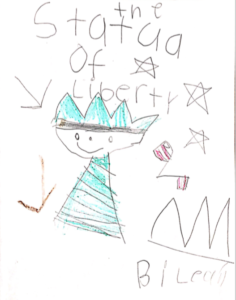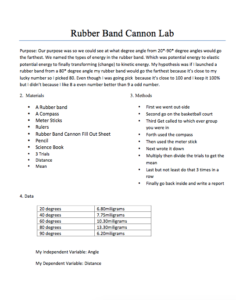“You Coming in my Room Today?”

He was sort of holding up the wall, waiting in a loosely-formed line to go into his sixth-grade classroom. As I walked by, he spoke to me without moving his head off the wall.
“You coming in my room today?”
I stopped and turned toward him. His head still propped against the wall, his dreads framing his beautiful face, his eyes straight ahead. “No, not this time,” I said. “I guess you’re off the hook until next month.” I grinned at him, fairly sure that he would be relieved.
As the line started to move, he pushed off the wall with the side of his head and moved his feet forward. I thought I heard him say, “I like it when you come. It helps me.”
I stopped. What?
And followed him into class.
“I’m sorry,” I said, this time catching his eye. “I didn’t hear what you said.”
He repeated himself, this time looking into my face. “I like it when you come in our class. It helps me learn. That’s all. I like it.”
“Oh,” I said. “I’m glad it helps. Thanks for letting me know.”
I get this a lot lately.
From kids.
From the seventh grade girls who looked at each other and said, “She says we’re awesome! Us. Hey, can we take this article home?” It was an article about the Sepoy Rebellion in 1837 in India. “For sure. Take it.” They ran up the hall waving it in the air like some sort of badge. Look what we did. Look what we made sense of! She said it was written for adults and we figured it out! We did it!
Or the seventh grade informant who stopped to tell me that what we worked on the previous month—previewing—was really helping her. Then she proceeded to tell me which of her teachers were expecting them to preview texts (and which teachers were asking them use texts) and which of them were not. “But Ms. Smith is doing it a lot. And it’s helping. I like science now because I get it.”
That’s HPL.

After studying about American symbols in social studies, Kindergarten students wrote their own books–this one about the Statue of Liberty.
Or the group of kindergarteners moving up the hall in a small mass who shouted, “Hey, Ms. Jennifer! We have a surprise for you! Wait ‘til you see the books we just made! Don’t tell her what they’re about…it’s a surprise!”
Or the fourth graders who groaned, “Don’t leave! We’re learning so much!”
In HPL, we focus on teaching the constructive processes of learning. We focus on helping students and their teachers learn to do the things real people do in real life to learn important and relevant content. How do scientists, engineers, mathematicians, historians, economists, musicians, and artists read, write, and talk to one another? What do they have to learn to do? How do they convey what they are learning and what they are endeavoring to learn to do?
In HPL, we are helping teachers to redesign their classrooms to reflect the characteristics of high progress literacy classrooms in the research, where students spend the majority of the time reading texts, talking about what they are learning, and taking notes and writing. Real world stuff.

One 6th grade student’s first experience planning and writing a lab report—one type of science writing.
Our focus isn’t so much on what teachers do. It is what teachers cause (plan, guide, and expect) their kids to do.
And so, for example, when we engage kids in science labs, we are learning together how to make the most of opportunities to read and write to build background so we can teach them how to plan a lab, how to pose questions, write a hypothesis, gather materials, determine procedures, and plan for how they will observe, collect, record, and analyze data. We are learning how to think carefully and critically about what a logical explanation of phenomena should contain (content) and we are figuring out how to teach kids how to construct and organize explanations about what they are learning.
Why? Because that’s what scientists do.
I am delighted and privileged to work with so many dedicated and passionate educators who have agreed to collaborate with us over the past few years to figure out how to make the conceptual concrete; how to put into practice the descriptions and ideas outlined in the research on engaged reading and achievement in every subject area. It is exciting work, and I am grateful for the opportunity to do it…with you.
This is my first blog post. Something I have thought about, obsessed about, feared, and loathed for well over a year after I decided that I needed to build a website and eventually, start blogging. Where to start? What to say? I’m still not sure.
Forgive me if I ramble. If you know me, you probably find all of that fear and loathing amusing. Because I’m one of those people who talks to figure things out, and I have this strange way of sounding like I know what I’m talking about, even when I’m still thinking it through. I’m rarely ever at a loss for words; I just keep talking until things start making sense to me.
But writing is different. Hence the fear and loathing. The choices we make as writers are slower and more deliberate than the ones we make as we are trying to think (or talk) our ways to clarity. Once it’s out there, it’s there. So there you have it. True confessions from a serial talker. I’m reluctant to put into writing thoughts that will probably seem not-so-inspiring in the morning.
But what I can say is this. The work we are doing in HPL continues to astound me, feed me, teach me, and send me back to ponder daily how much of what I thought I knew I actually did know. Because with every day in every classroom with the teachers, leaders, and amazing students I work with, I learn more about what it really means to be a learner. What it means to learn how to do what you don’t already know how to do. To produce, write, or explain something you didn’t know an hour ago, or a day or two ago. It is exciting and gratifying to be working within a community of learners committed to learning how to make the conceptual practical so we can make a difference for kids.
And we are making a difference. The kids are changing (and they feel the changes) and their teachers are willing to keep trying because they quickly see the changes in their students.
When I first started High Progress Literacy Associates, I contracted with a district to spend half a day each month working with their Pre-K – 12 instructional coaches. At the end of our year together, I asked them to reflect on what we had done, what we had learned, and to think about possible ways forward.
One coach said, “I wish you would at least write stuff now and then so we could continue to learn and think with you.”
Hmm. I guess this is that. This is my first effort to write stuff now and then so we can continue to learn and think together.
I hope you’ll play with me…the HPL sandbox has lots of room for your experiences, your questions, your enthusiasm, your learning…so we can continue this journey…together.
High Progress Literacy is copyright (c) 2022 by High Progress Literacy Associates, LLC. The materials on this site are free for individual use and for educational purposes. Any commercial use is strictly forbidden. Materials may not be redistributed without the express written permission of High Progress Literacy Associates, LLC.


Jennifer, this helped me put in perspective why we do what we do! Fabulous blog…I do hope you will write often.
Marie
Thanks so much, Marie! I think it is so important that we keep teaching in perspective…because what we do only matters to the extent that it helps kids become excited, independent, and motivated learners!
What makes this piece of writing charming for me is that I can hear your voice in my head as I read it…I see how you are thinking while you are talking!
One of the biggest takeaways for me has been the importance of categorization. During the workshop, you explained how so much of the learning process is matching new information to prior schema. When I began to examine how I taught and how I thought, I was amazed to see how important this is every minute of every day. Categorization is something I innately use in my classroom because I am a very categorical thinker. Moving forward, I plan to pair my instinct with a sense of purpose as I emphasize the importance of mental bridge building.
Amber,
You are so right about the role of categorization–relating the new to what is already known. I think that for way too long we have short-changed kids’ lived experiences, expecting them to have the “same” experiences they are trying to learn about, rather than teaching them to think about how “this is like that but different because…” That is the act of relating and of categorizing. And that is what we, as teachers of learning how to learn have to keep working at, for ourselves and for our kids.
Thanks (as always!) for your thoughtful and insightful comments! I’m very excited about your plans for next year!